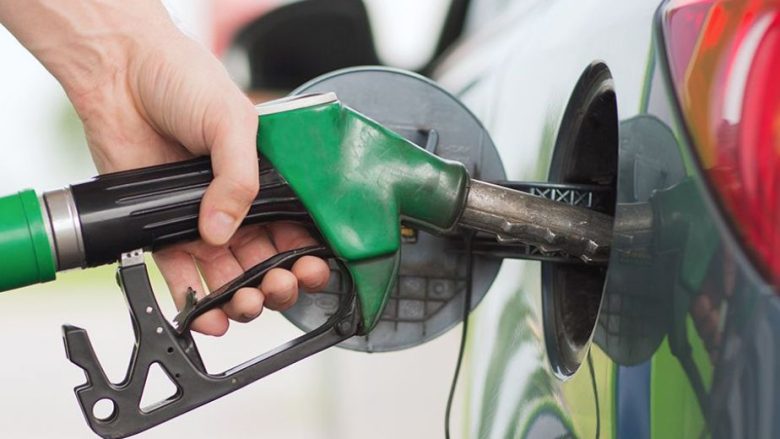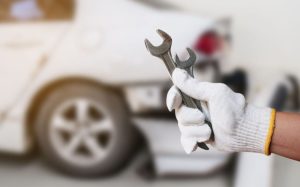Fuel costs are a major concern for modern drivers. Fuel costs can add up quickly, and fuel expenses are a major part of many household budgets. You cannot control fuel prices at the pump, but you can control your consumption by changing your driving habits. Fuel efficiency isn’t just about saving money but also about reducing the impact on the environment and maintaining your car for longer. Over time, small, consistent changes to the way you drive will add up to significant savings, making your trips both cost-effective and sustainable.
The Role of Smooth Driving in Fuel Savings
Driving smoothly is one of the easiest and most effective ways to reduce fuel consumption. Your car will consume more fuel if you accelerate and brake frequently. You can reduce unnecessary fuel consumption by anticipating traffic and maintaining a constant speed. Instead of accelerating quickly and stopping at a stop sign, you can coast slowly to the stop to make your engine work more efficiently. Smooth driving will not only save fuel but will also help to reduce wear and tear on the engine and brakes of your vehicle. This means lower repair costs over time.
The Impact of Speed on Fuel Efficiency
The speed of your vehicle is a key factor in how much gas it uses. It may be tempting to speed up to save time. However, the increased speed will usually lead to a lower fuel efficiency. The majority of vehicles are designed for optimal fuel efficiency at moderate speeds. This range is usually between 50 and 70 km per hour. The engine will have to work harder to overcome air resistance and burn more fuel. You can achieve a good balance between fuel efficiency and timely arrivals by reducing your speed. Driving at a steady pace can help you save money on fuel over the course of several weeks or months.
Tire Pressure and Maintenance is Important
Tire pressure is one factor that directly impacts fuel consumption. Tires that are under-inflated increase rolling resistance and require the engine to burn more fuel to keep moving. Regularly checking tire pressure will ensure that your vehicle runs safely and efficiently. Regular maintenance, such as oil changes, air filter replacement, and engine checks, also plays a major role in fuel efficiency. Well-maintained cars always use less fuel than neglected ones, which proves that maintenance is an investment in saving money.
Reduce Idling and Fuel Waste
Many drivers have the habit of running their engines while they wait at traffic signals, parking lots, and outside homes or offices. Idling, however, wastes fuel and emits emissions without achieving anything. Even if you only turn off the engine for a few moments, it can save more than you think. Modern engines can be restarted efficiently. Therefore, it is better to shut down and restart when necessary than waste fuel by idling. This simple habit will not only reduce fuel costs but also help to reduce air pollution.
Reduce the Load for Better Efficiency
Excess weight can affect fuel efficiency. The more fuel your engine needs to move, the more weight it has to move. Many drivers forget about items in the trunk, roof racks, or rear seats that they don’t use every day. Decluttering and keeping only what you need in your car can reduce fuel consumption. Roof racks and carriers also increase wind resistance and make your car less aerodynamic. Such behavior increases fuel consumption. When not in use, removing these items will help your car to move more efficiently.
Use Air Conditioning Wisely
The air conditioning system is a wonderful comfort for many drivers, but it can also increase fuel consumption and put extra strain on the engine. It is important to use it sparingly and at low speeds. This will make a significant difference in your fuel efficiency. Open windows to allow for ventilation on cooler days. However, at high speeds, rolled-down windows can also create drag, which reduces fuel efficiency. It’s a beneficial idea to strike a balance between using air conditioning only when it is necessary and turning off the system when not needed. This will reduce costs without sacrificing comfort.
Plan Your Routes for Efficiency
Plan your journeys to save fuel. Fuel consumption increases when you make unnecessary short trips or take congested routes. Planning ahead, combining your errands in one trip, and avoiding rush hour traffic when possible will help you reduce the amount of stop-and-go traffic that consumes fuel. It’s easier than ever before to select efficient routes with the help of navigation apps and traffic updates in real time. Smart route planning means fewer kilometers driven, lower fuel consumption, and overall savings.
Conclusion
Simple, practical, and highly effective, fuel-saving driving habits can reduce costs over time. Each small change can add up to significant savings. From driving more smoothly and reducing your speed to maintaining your car and planning an efficient route. These habits will not only save you money but also make your trips safer and more eco-friendly. You can save fuel without sacrificing convenience or comfort by being aware of your driving habits, maintaining your vehicle in good shape, and exercising patience while on the road. Your driving habits may not be in your control, but you can still maximize fuel efficiency.
FAQs
1. How can I save money by driving more efficiently on the road?
Fuel savings vary according to your driving style. However, consistent habits, such as reducing speed and avoiding idle time, can help you save 10–20 percent.
2. Should I turn off the engine when stopping for a short time?
Modern engines are designed for efficient restarts. Yes, you can save more fuel by turning off your engine when it is idling.
3. Does air-conditioning really consume a lot of fuel?
Air conditioning can increase your fuel consumption in the city, so it is important to use it properly.
4. How frequently should I check tire inflation?
Tire pressure should be checked at least once per month to maintain safety and efficiency. Underinflated tires waste gas.
5. Do small trips waste fuel?
Cold engines are less fuel efficient. Combine errands in one trip to save both time and gas.



